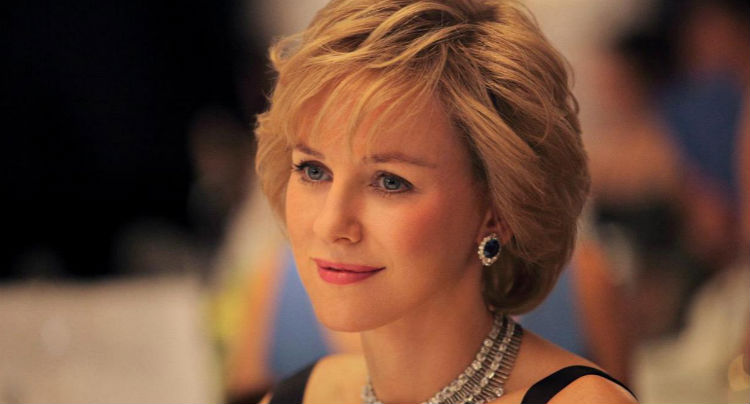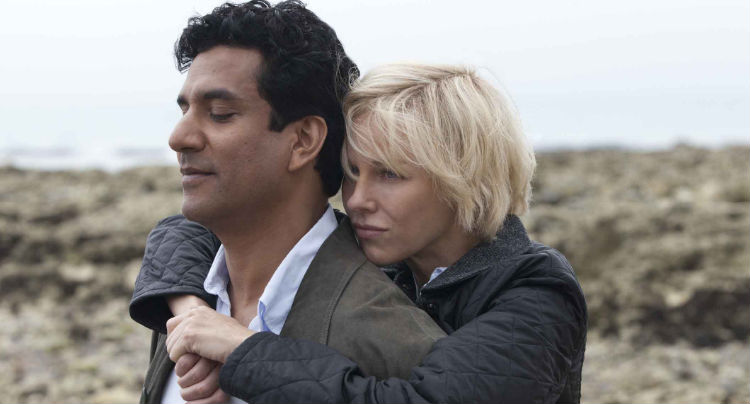
Diana's memory deserves much, much better than this.

Diana's memory deserves much, much better than this.
Somehow, some way, director Oliver Hirschbiegel has managed to make one of the most enchanting, magnetic, ravishing people of the last century one of the dullest, lifeless movie subjects in recent memory. Diana, a wreck of a film, chronicles the final years in the life of the late Princess of Wales, before her tragic car accident in 1997. Poor, poor Naomi Watts, who’s typically phenomenal, does a fine impression of the Princess, but is given zilch to work with in the emotionally anemic script, which fancies itself a classical romance but ends up having all the emotional depth of a week-long junior high hallway fling.
The real-life Diana was damaged goods, the child of a broken home, who also happened to be one of the most iconic beauties of our time. She was utterly fascinating, which is why the world watched her so intently. Hirschbiegel and Watts’ Diana is a perpetually wailing, pedestrian fool. This isn’t a dramatization–it’s a sterilization, sapping all vitality and wonder out of our precious Princess.
There are oh so many blunders to choose from in this royal mess of a film, but I’ll start with the most excruciating of all. Hirschbiegel and screenwriter Stephen Jeffreys focus on one of the most uneventful (albeit significant) relationships of Diana’s life: her two-year romance with heart surgeon Hasnat Khan, played here by Naveen Andrews (Lost). The film is fixated exclusively on their relationship which, quite frankly, there isn’t that much to say about. In fact, I can sum up the romance in one sentence. Here goes: Hasnat and Diana love each other deeply, but Hasnat can’t handle her enormous celebrity, so they split. The movie is 113 minutes long, for god’s sake.

Jeffreys’ script (based on a novel by Kate Snell) runs round and round, repeating scenes and conflicts ad nauseum, elongating the already skinny narrative until it’s thin as air. The film opens with an underwhelming tracking shot of Diana getting ready in her Paris hotel room, moments before the fatal tragedy. Then, we flash back a few years and we see a sullen Diana, separated from her husband, Prince Charles, sitting alone in large, extravagant, empty rooms, suffocating from the isolation of her celebrity. She meets Khan, an exceedingly accomplished surgeon, at the hospital and invites him over for dinner. The idea initially strikes Khan as absurd–this is The Most Famous Woman in the World!–but when it sinks in that she’s serious, he obliges with English gentleman charm. Khan makes Di feel like she’s a normal person again, which thrills her.
Let the cycle of boredom begin! They make love, Hasnat gets tired of the press, they break up. They get back together, Hasnat gets tired of the press, they break up. And again, and again. To compound the tedium, Diana’s family–Charles, her sons–is left completely out of the picture, reduced to fleeting, throw-away mentions by Diana.
Thrown into the mix are some reenactments of Diana’s philanthropic acts, most notably a famous stunt she pulled to eliminate the use of land mines across the globe, in which she walked gingerly across a minefield wearing a helmet and a flak jacket. These segments feel like cheap theater reenactments and don’t add dimensions to her character so much as they provide moments of respite from Watts’ brutal scenes with Andrews.

Watts is a great actress, but she doesn’t do well in her role as Diana. But one wonders if anyone could, with vapid material like this. It’s like expecting Tiger Woods to win the U.S. Open with a hockey stick. This is a fail for Watts, but she was doomed from the start. She looks the part (though her prosthetic nose is weird), appearing truly glamorous on occasion, exuding the grace of an old-fashioned Hollywood starlet (a bird’s-eye shot of her in a bright blue dress facing a sea of photographers on a royal red carpet is undeniably stunning). Andrews, also a good actor, is a victim of the material just as much as Watts, and the two have the romantic chemistry of cousins forced to make out on camera. It all feels really, really…awkward.
Diana is a yawner, and the Princess’ memory deserves much, much better than this. There’s a big responsibility that comes along with portraying a recently deceased, widely beloved person on-screen, a responsibility to dig at the truth. The truth is, Diana was as complex, compelling, and vivacious a public figure as any in recent memory, but Hirschbiegel’s Diana is a miserable, irritating bore without an iota of spirit in her body. This is a lie.